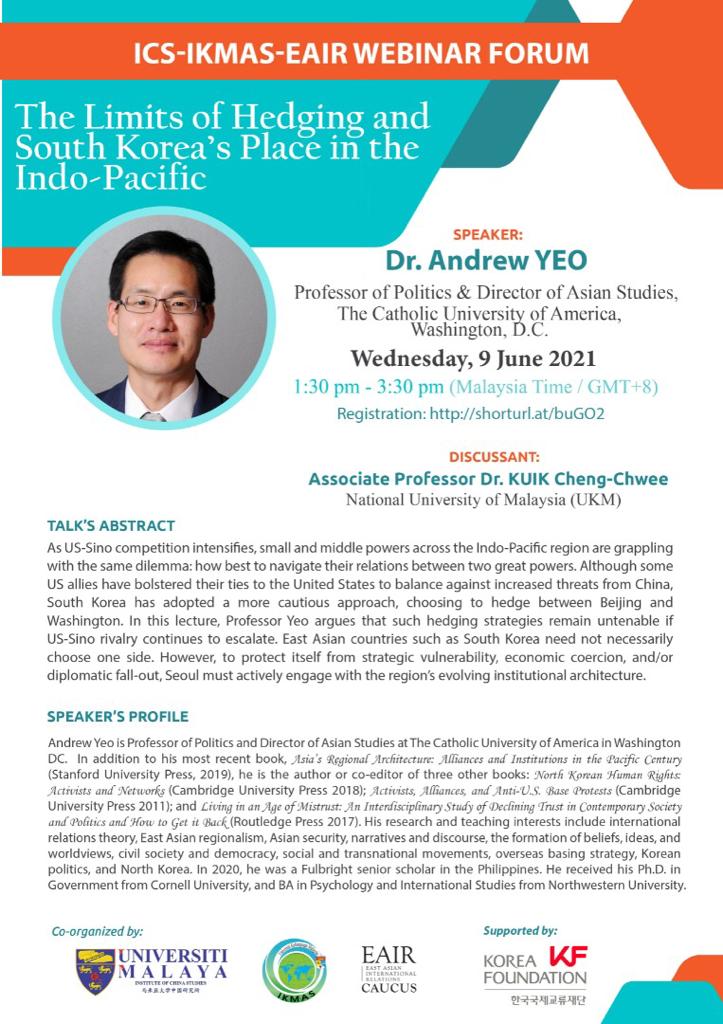
As US-Sino competition intensifies, small and middle powers across the Indo-Pacific region are grappling with the same dilemma: how best to navigate their relations between two great powers. Although some US allies have bolstered their ties to the United States to balance against increased threats from China, South Korea has adopted a more cautious approach, choosing to hedge between Beijing and Washington. In this lecture, Professor Yeo argues that such hedging strategies remain untenable if US-Sino rivalry continues to escalate. East Asian countries such as South Korea need not necessarily choose one side. However, to protect itself from strategic vulnerability, economic coercion, and/or diplomatic fall-out, Seoul must actively engage with the region’s evolving institutional architecture.
About the speaker:
Andrew Yeo is Professor of Politics and Director of Asian Studies at The Catholic University of America in Washington DC. In addition to his most recent book, Asia’s Regional Architecture: Alliances and Institutions in the Pacific Century (Stanford University Press, 2019), he is the author or co-editor of three other books: North Korean Human Rights: Activists and Networks (Cambridge University Press 2018); Activists, Alliances, and Anti-U.S. Base Protests (Cambridge University Press 2011); and Living in an Age of Mistrust: An Interdisciplinary Study of Declining Trust in Contemporary Society and Politics and How to Get it Back (Routledge Press 2017). His research and teaching interests include international relations theory, East Asian regionalism, Asian security, narratives and discourse, the formation of beliefs, ideas, and worldviews, civil society and democracy, social and transnational movements, overseas basing strategy, Korean politics, and North Korea. In 2020, he was a Fulbright senior scholar in the Philippines. He received his Ph.D. in Government from Cornell University, and BA in Psychology and International Studies from Northwestern University.
